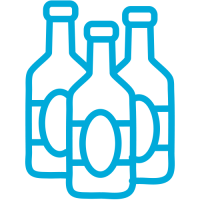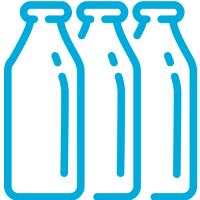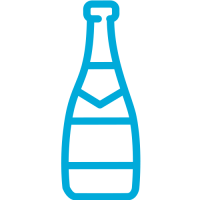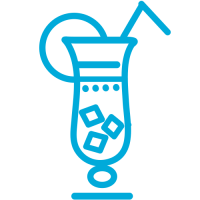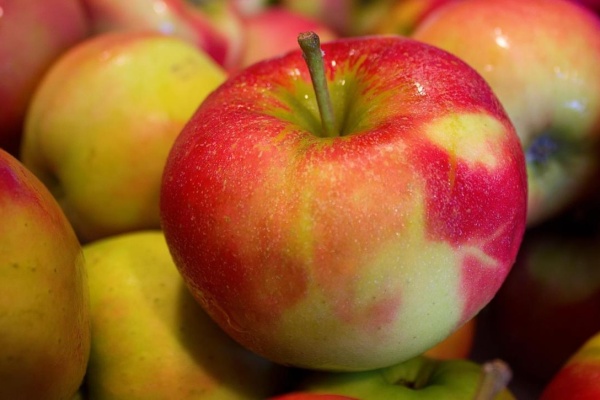Hard Cider
Hard cider is generally an alcoholic beverage made from the fermented juice of apples, though in recent years more fruit flavors of cider have become commonplace. Like beer, cider is an ancient drink. The origin can be traced back to the British Isles in 55 BC, and the drinks popularity spread quickly from there. Because most kinds of apples were too bitter to eat until more modern times, apples were instead pressed for their juice, which was left to ferment, resulting in cider.
Today, cider is fairly popular worldwide, but especially in the UK, India, Canada, and the U.S. Cider comes in a variety of flavors and styles ranging from dry to sweet, much like wine. Many factors play into the end result of a cider; the color, cloudiness, and flavor can all be drastically affected by the types of apples used, as well as the filtration and fermentation method. This leaves great room for creativity and innovation in the cider industry, but also a greater margin of error when attempting to brew your perfect cider, or maintain a consistent product.
Market Innovation
Many ciders are now incorporating other fruit flavors, such as cherry-rhubarb, pear, or orange, or adding spices like cinnamon and clove. Other brands are adding hops, or aging their cider in wood barrels in order to set their ciders apart. Recently, rose ciders have become more popular. These ciders are generally blush pink in color and are made from varieties of apples with pink flesh.
Regulations
As with most alcoholic beverages in the United States, hard cider compliance is complex. The ingredients, alcohol content, and carbonation level can all factor into the way your cider is classified, taxed, and regulated. Consulting a lawyer and having a working knowledge of the laws and regulations is highly recommended when producing any type of alcoholic beverage.
